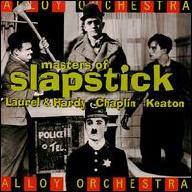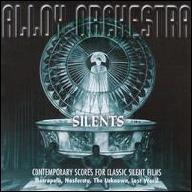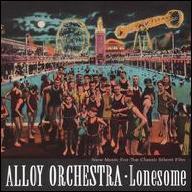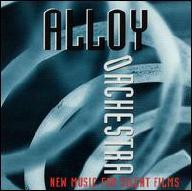Originally, the Alloy Orchestra formed in Boston in 1986 as a collaboration between keyboardist and composer Caleb Sampson, a fixture on the local avant-garde scene (as well as a film and television soundtrack composer who worked on the children's television series #Sesame Street), and percussionist Ken Winokur (Birdsongs of the Mesozoic, Morphine, No Man, etc.). In their earliest days, the Alloy Orchestra performed scores for ballets and improvisational theater troupes along with stand-alone gigs. In 1992, the Coolidge Corner Theater in Brookline, MA, offered Sampson and Winokur an opportunity to create a new score for the classic silent film #Metropolis. The duo added second percussionist Terry Donahue (who also played in Rich Gilbert's Concussion Ensemble with Winokur) for the gig, which turned into a wildly successful multi-night stand. The trio debuted at the Telluride Film Festival in Colorado later that year (they have performed at every Telluride Film Festival since as well), and from that point focused entirely on creating film soundtracks.
The Alloy Orchestra released their first album, New Scores for Silent Films, in 1994 on Accurate Records, the jazz and modern improvised music-based subsidiary of Rounder Records. Lonesome, a complete score for a 1928 classic silent film, was released the following year. A third album, Silents, was released in 1997, collecting segments from Alloy Orchestra scores for such well-known films as #Metropolis and #Nosferatu.
Caleb Sampson committed suicide in June 1998. Rather than discontinue the name, Winokur and Donahue asked Roger Miller, the ex-Mission of Burma guitarist whom both had worked with in Birdsongs of the Mesozoic and No Man, to take Sampson's place. The first Alloy Orchestra release with the new lineup, 1999's Slapstick, is by design the group's wildest and most humorous work. The turn of the century found the newly reconstituted trio working with the silent comedy shorts of Fatty Arbuckle and his sidekick, a young Buster Keaton. Several DVDs of these restored classics, with the Alloy Orchestra's scores, were released in 2001. ~ Stewart Mason, Rovi















